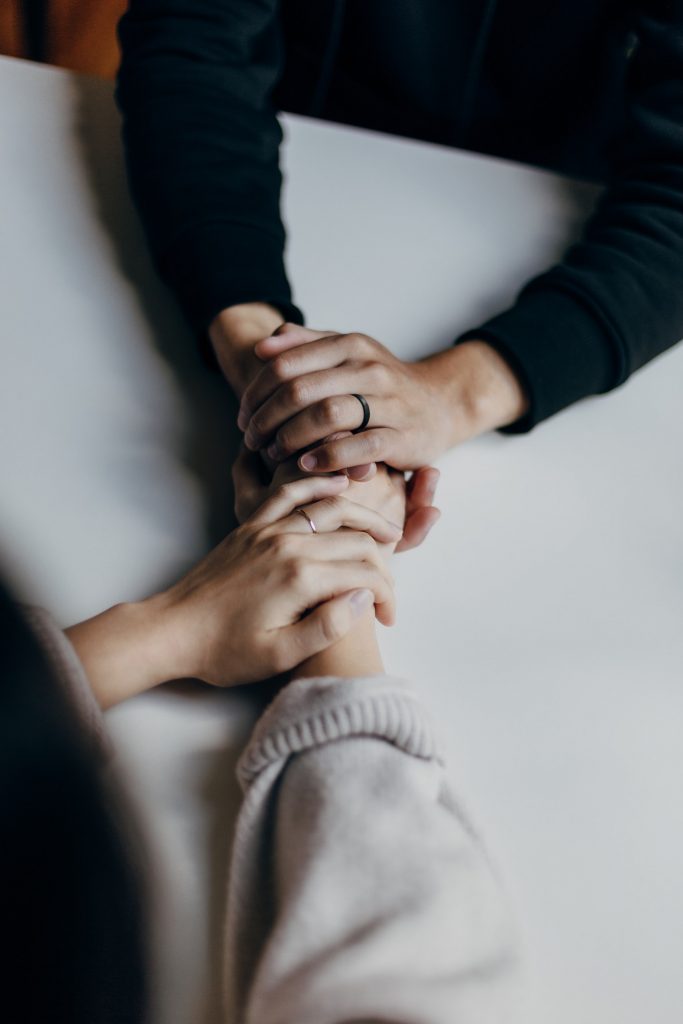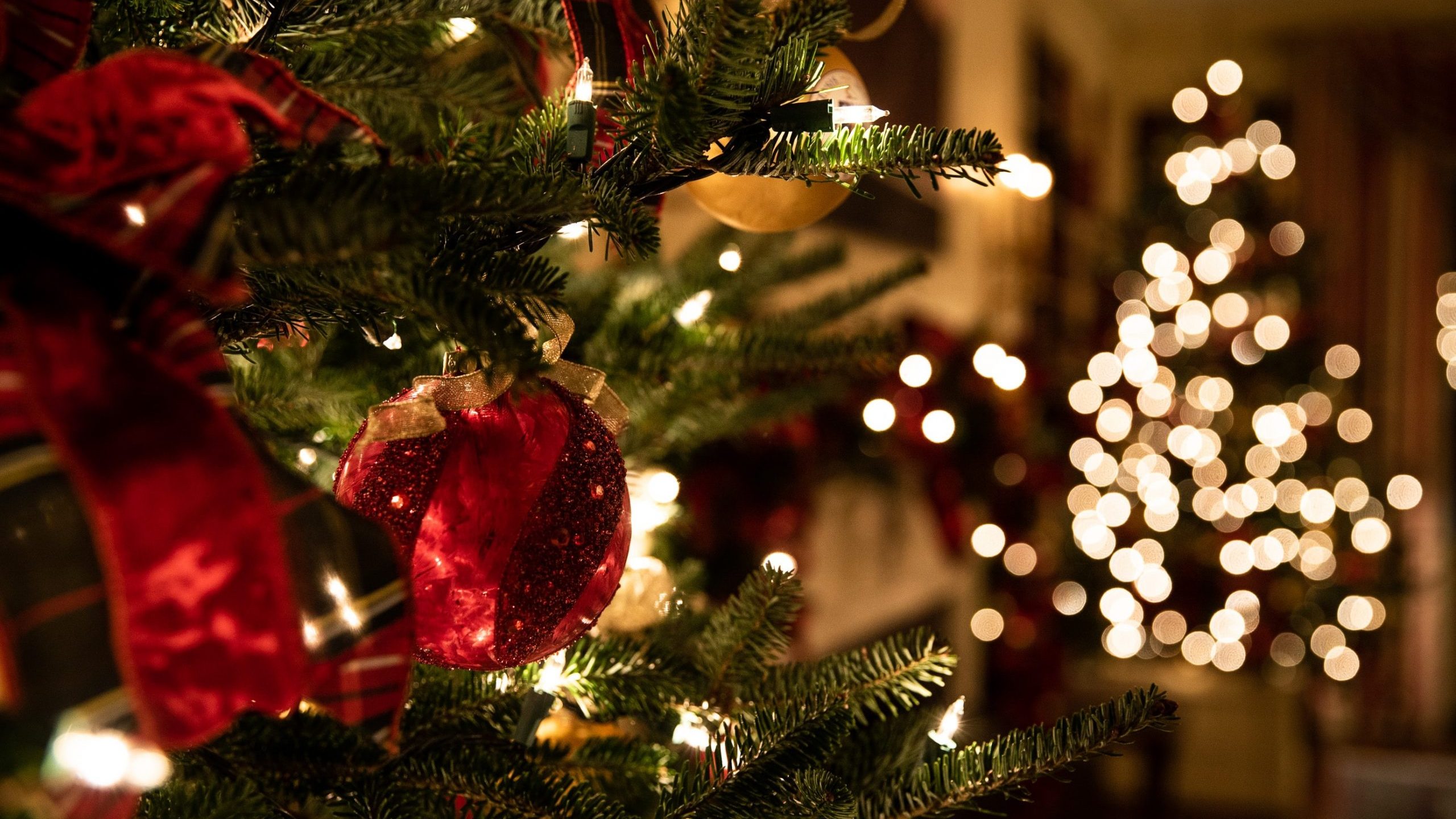Two young Welsh women share how their eating disorders changed the way they celebrate Christmas
THIS Christmas, most of us will be looking forward to pulling crackers over a juicy roast turkey or digging into the chocolate tin that Santa has left us.
For those suffering from an eating disorder though, this joyful season brings feelings of great anxiety and dread.
Last Christmas was the busiest ever for the helplines of Beat, the UK’s eating disorder charity.
“So many people desperately needed someone to talk to,” said Caroline, a helpline advisor.
“I honestly don’t know where some people would go if the helpline wasn’t there.”
If this is a feeling that resonates with you, it’s important to remember you are not alone. Anyone can be affected, regardless of race, age, body type or gender.
Katrin, 24, from Cardiff

Last Christmas, Katrin was one of the 1.25 million people in the UK with an eating disorder struggling to navigate the festive period.
Katrin’s unhealthy habits with food began as early as 13 and she felt that there was a lack of resources and education available during her teenage years.
In March 2021, Katrin was diagnosed with bulimia. The year prior to that, her disordered eating had spiralled out of control.
In the space of 12 months, Katrin experienced the death of her older brother in a tragic car accident and an end to a toxic relationship. All the while, she was working in a mental health ward at the height of Covid-19.
This has been Katrin’s festive reality for the last two years.
“Winter 2020 is when I realised I was using exercise as an unhealthy coping mechanism,” she says.
“It was the height of Covid-19. I was grieving the loss of my brother while working in a hospital. As well as, trying to find somewhere to live.
“It was all very stressful. And not being able to access the gym on top of that – everything snowballed.
“When Christmas 2021 arrived, I was at the beginning stages of my recovery journey, and I was stuck in the house with all these goodies. It was a tough time. I had no way out and no distraction techniques. It set me off completely, into an unhealthy cycle of eating and purging.”
An eating disorder steals from you, anything you would have previously enjoyed.” – Katrin
Although Katrin feels more confident celebrating Christmas this year, she explains that she is still apprehensive about the upcoming festivities.
“I still feel a bit anxious in the run-up to the festive season because tempting food is everywhere,” she said.
“In work, people will bring Christmas treats into the ward for everyone. It’s like dangling wine in front of a recovering alcoholic in a way. When you are constantly surrounded by it, you get anxious because you think: I want to eat it but should I?”
Katrin recalls a time before her eating disorder took hold. In sixth form she and her close friend, Caity, would go to Tesco and buy a tub of ice cream to eat. She said: “We just enjoyed the food. But bulimia completely changed that for me. An eating disorder steals from you, anything you would have previously enjoyed.”
Eve, 22, from Swansea

Like Katrin, Eve also began to use exercise to an unhealthy point. At 15 years old, Eve started running with her friends. The perfectly innocent activity soon became an obsession for the teenager. Shortly after, she became restrictive with the food she was eating.
Chatting over hot americanos in the cold winter wind, Eve explained how, as her appearance and habits changed rapidly, her friends noticed and would often ask her if she was okay. She said: “I would shut down any questions about it. I always denied I had a problem because I thought I was being healthy.”
At 18 Eve sought professional help for the first time because her periods stopped. Despite being visibly underweight and telling the doctor that she ran frequently, the doctor told her it wasn’t a problem unless she was trying to get pregnant.
“They very much brushed off the issue,” Eve said.
There were many opportunities to help Eve that were missed. And coming from a family of foodies, Christmas was not always easy.
“Christmas is a bit of a nerve-wracking time,” she says.
“You worry more about the comments others will make. I just don’t want people to draw attention to what I am eating.
“I am still going through a period of my life where those around me are adjusting to my recovery. This will eventually change. But it does make me more conscious of what I say to others because even the smallest comments can harm somebody else.”
It was abrupt but he was right. You can’t live like this forever.”
Eve
Eve’s family would make small changes around Christmas to make the day easier. A buffet for dinner where she could choose the food she wanted. And stockings filled by her mum with nuts instead of chocolate. Eve hadn’t eaten chocolate for four years: “I forgot how it tasted,” she said.
But all these small changes made an overwhelming day easier for Eve amid the height of her eating disorder struggles.
Her wake-up call came in a conversation with her boyfriend about their future together. “We talked about having kids and he told me he would be concerned if I continued my unhealthy habits in front of our potential children. It was abrupt but he was right. You can’t live like this forever,” said Eve.
Eating disorders make it hard for people to enjoy Christmas altogether says Dr Marc Williams, a lecturer at Cardiff University and a clinical psychologist of 10 years experience.
“Everything food-related ramps up. You go to your local supermarket and there are all sorts of deals. It very much feels like an assault of food-related things,” he said.
However, planning before the celebrations is a way you can support a loved one who is struggling with food during the Christmas holidays.
“Having discussions with the person who has an eating disorder, having foresight of those potential triggers well in advance and planning how to deal with it, is the advice I would give,” said Dr Williams.
“You want someone with an eating disorder to eat regularly over the Christmas period. In a way that isn’t out of control and that doesn’t involve bingeing or under-eating.”

Susie Pinchin, a BACP accredited counsellor, echoed Dr Williams’ advice for supporting those with an eating disorder at Christmas time.
“It’s a case of planning,” she said. “Share with others that Christmas is going to be difficult for you. Say what you might find helpful to navigate this stressful time.”
“Putting less focus on food may help. Have a nice meal but then perhaps discuss the games you will play afterwards. Not, ‘we have just had a lovely meal, so now let’s get the chocolates out’.”
The language we use is also important in supporting others. What we may think are minor comments can be harmful to those suffering.
“If you have an eating issue hearing things like ‘stuffing ourselves’, ‘let’s go pig out’, ‘let’s get the chocolates out’, it can be overwhelming and difficult for people to deal with,” says Susie.
Many people will be struggling with an eating disorder this festive season. Small changes in traditions and language can help ease a stressful time for them. Beat, the eating disorder charity is also here to help. They have resources and advice available on their website.
If you or someone you know is struggling with an eating disorder this Christmas, you can contact:
- Your local GP
- Beat’s helpline for Wales on 0808 801 0433. They are open 365 days a year.
- Beat’s one-to-one web chat



